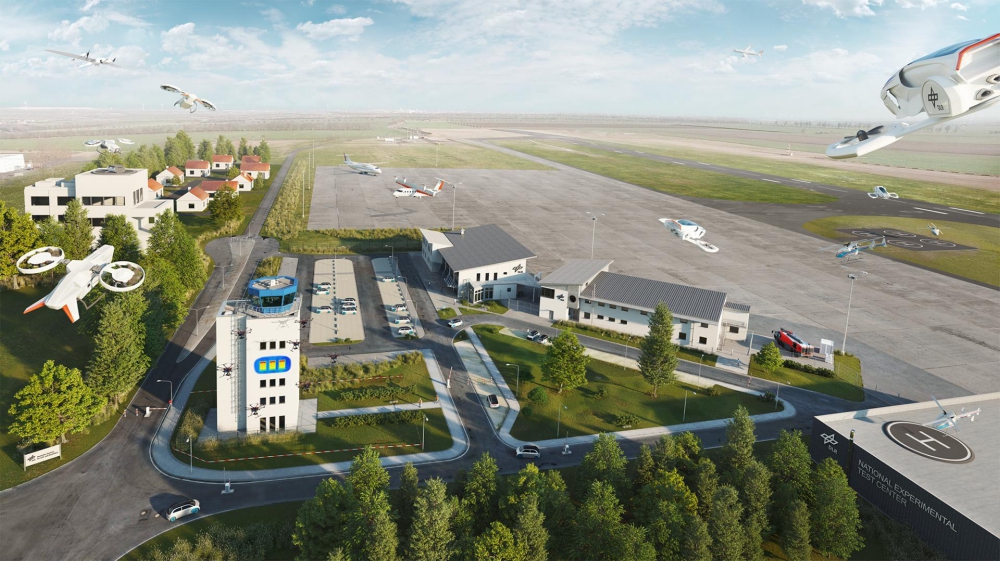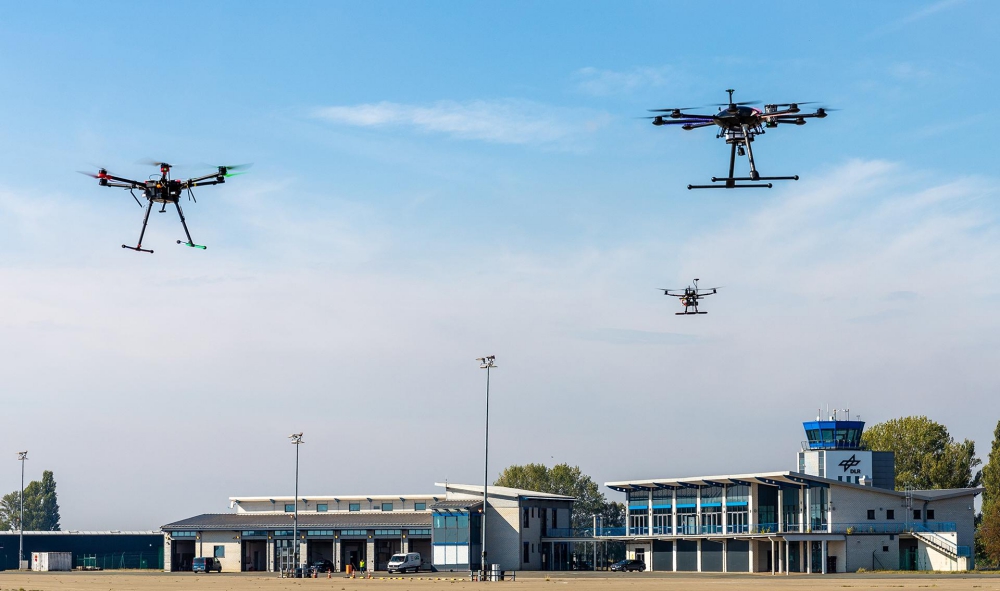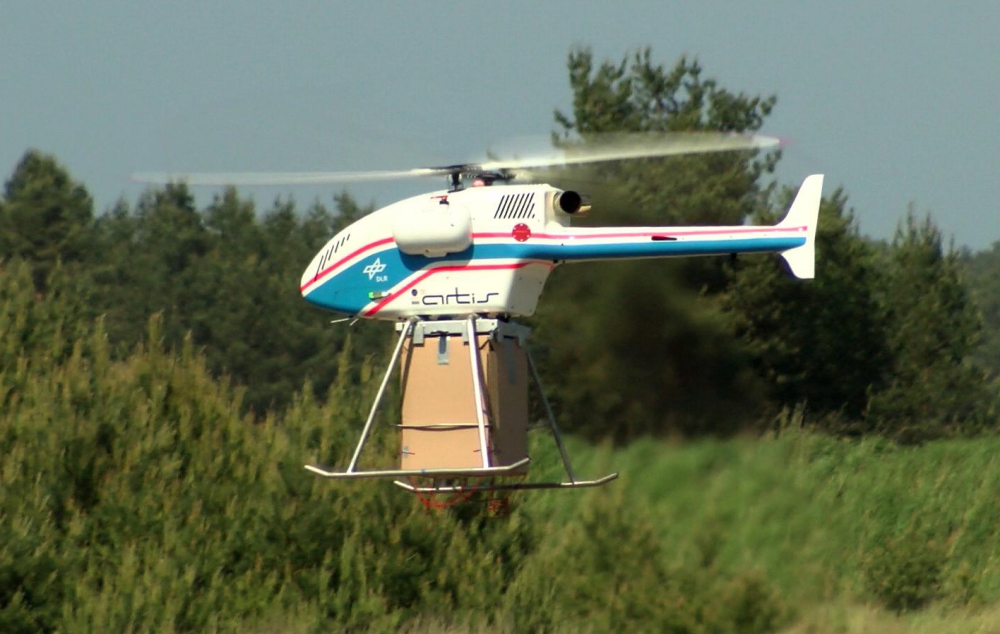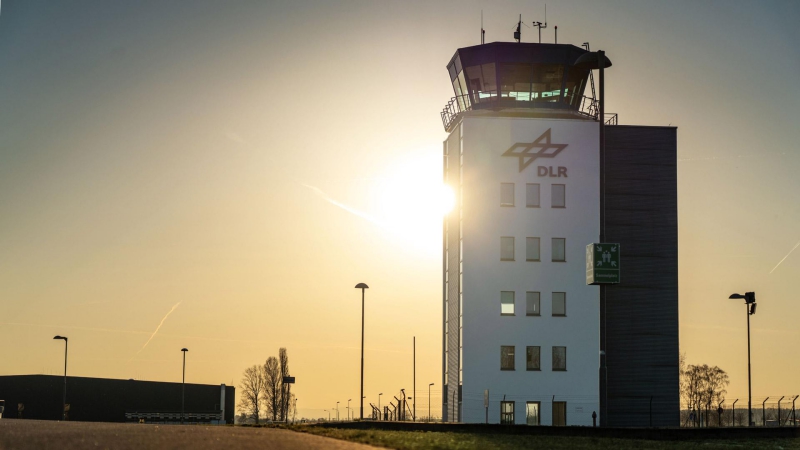On 31 March 2021, the official launch of the German Aerospace Centre (Deutsches Zentrum für Luft- und Raumfahrt; DLR) National Experimental Test Centre for Unmanned Aircraft Systems and a Europe-wide network for Unmanned Aerial Systems (UAS) research and testing took place.
“The opening of the National Experimental Test Centre for Unmanned Aircraft Systems at our Cochstedt site heralds the launch of a facility that is unique in Europe. This is where DLR’s capabilities and expertise in the field of Unmanned Aerial Systems are concentrated,” explained Anke Kaysser-Pyzalla, Chair of the DLR Executive Board. “Technology development, certification and work on new regulations determine the cooperation with our partners from industry and public authorities. Science and research thus form the basis for new air transport technologies. The German Federal Government and the state of Saxony-Anhalt have significantly supported and assisted with the establishment and development of this facility as a central location for national and international UAS research.”
Future mobility solutions such as Urban Air Mobility pose numerous new challenges for scientific research, industry and government, and these require solutions. The main focus is on testing demonstrators, propulsion systems and energy storage technologies, the integration of UAS into civil airspace, certification and approval, and acceptance, particularly with regard to noise, safety and environmental impact.
Thomas Jarzombek, German Federal Government Coordinator of Aerospace Policy, emphasised:
“The Cochstedt test centre is another building block towards strengthening Germany as a centre of innovation. Together with the DLR centre in Aachen-Merzbrück, expertise in unmanned flight will be further strengthened in the German research landscape. Numerous high-quality drone manufacturers are already based in Germany and the drone industry has become a major economic factor. New innovations in the field of air transport need space to be tried out. With the Cochstedt site, we have opened up such a space, which will hopefully provide fresh impetus in the field of air transport. I am therefore pleased that the Federal Government can make a significant contribution towards improving the infrastructure through DLR.”
Reiner Haseloff, Minister President of Saxony-Anhalt, said at the opening:
“All previous uses of the traditional airfield in Cochstedt have ultimately proven to be unsustainable. Now, with DLR’s National Experimental Test Centre for Unmanned Aircraft Systems, a new project is underway and I am convinced it will enjoy long-term success. I am also certain that it will advance the region and significantly strengthen Saxony-Anhalt as a location for research and innovation.”
Saxony-Anhalt’s Minister of Economy, Science and Digitalisation, Armin Willingmann, stated:
“For years, Cochstedt Regional Airport struggled to be a success, and was almost closed at times. I am very pleased that after negotiations that were as discreet as they were intensive – with the crucial involvement of the Ministry of Economic Affairs – it has been possible for the airport to be taken under the umbrella of the German Aerospace Centre. This means that Cochstedt will not only become the centre of a future technology in Saxony-Anhalt, but the research airport will also evolve into a hub for companies from the air transport and logistics industries that want to develop or use unmanned aerial systems. The Saxony-Anhalt Ministry of Economy, Science and Digitalisation will be providing more than 15 million euro in institutional funding in the coming years so that the National Experimental Test Centre in Cochstedt will continue to transform into a place of the future, where high-quality jobs will be created, and international research and development will have a special place. I am convinced that Cochstedt will be a beacon on the way to developing Saxony-Anhalt as the federal state of future technologies.”
The activities are integrated into DLR-wide projects and collaborations with partners from research and industry in Germany, Europe and around the world. DLR already cooperates in the field of UAS research with major institutions such as the US National Aeronautics and Space Administration (NASA), the Netherlands Aerospace Centre (NLR) and the Japan Aerospace Exploration Agency (JAXA). The test site in Saxony-Anhalt will be accessible for users ranging from start-ups through to established air transport industry companies for research and testing. It will also have an incubator and enabler function for start-ups and SMEs. For licensing reasons, it is necessary that new unmanned aircraft systems are tested and qualified under realistic conditions in a controlled environment.
Existing buildings and facilities are being renovated and converted. Subsequently, the research infrastructure will be developed and constructed. In order to become truly operational, the reopening of the commercial airport is planned on a smaller scale, probably from 1 August 2021. A total of around 15 million euro is to be invested in the development of research as well as operational infrastructure by the end of 2022. Recruitment of scientific and technical staff will drive the development forward in the coming months. The objective is to have a total of around 60 employees working in research and operations at the site by the end of 2022.
Currently, the focus is on further upgrading the infrastructure for the users of the test centre. Test campaigns for the first projects are already taking place in Cochstedt. For example, there will be extensive final tests of the DLR City-ATM project in summer 2021. It is expected that several drones will fly together with approximately 100 virtual drones in a complex traffic scenario at the Cochstedt site. In addition, various flight tests are planned with the DLR ALAADy Demonstrator and superARTIS research helicopter during the course of the year.
Source: Press Release





Freut mich. Gruss an die Mannschaft
Bothmer